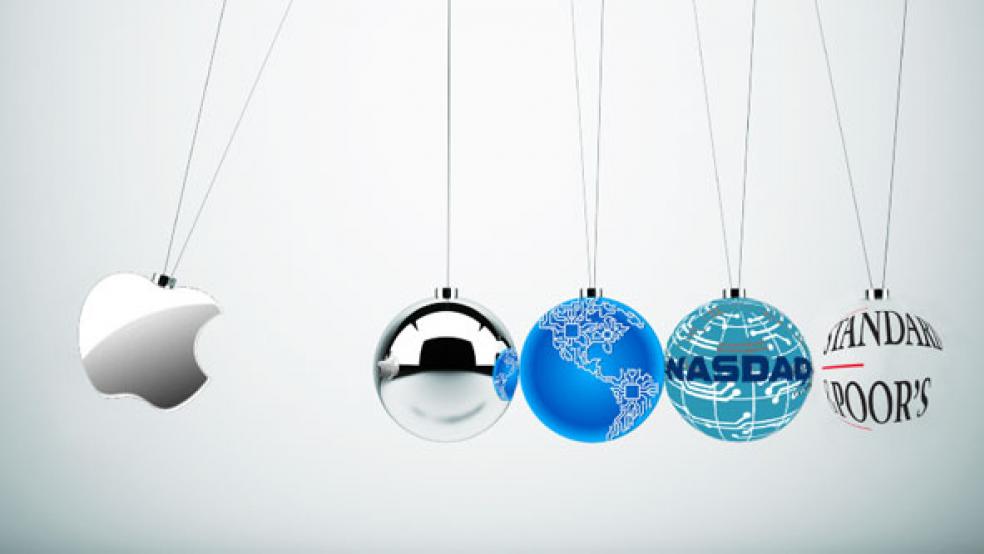For the first time in a long time, fundamentals matter.
Stocks are dropping not on Federal Reserve rate hike fears, Greek euro exit concerns, Ebola, Chinese equity volatility, or the various other macroeconomic-related worries. Instead, top- and bottom-line results are pulling down U.S. equities as revenue growth slows and concerns that the Q2 earnings season could be the worst since 2009 appear to be coming true before our eyes.
Just one day after the tech-heavy Nasdaq stock index notched a new record high, stocks moved sharply lower on Tuesday, dragged down by blue-chip industrials after the big revenue miss by IBM (IBM) Monday night. The drop has taken the Dow back below the 18,000 level first crossed back in December.
Related: Apple Results Weigh on Futures
IBM was hit after quarterly revenues of $20.8 billion missed the $21 billion consensus estimate on a sizable drop in software sales ($5.8 billion vs. $6.5 billion in the same period last year). The top-line decline was Big Blue’s largest pullback since 2009 and marked the 13th consecutive quarter of falling revenues — raising concerns IBM's problems are structural.
After the close on Tuesday, things got worse.
Market sweetheart Apple (AAPL) said its earnings jumped 38 percent, but iPhone shipments of 47.5 million missed the 50 million analysts expected, and the company’s sales forecast disappointed, too. Apple shares fell about 7 percent in after-hours trading, for a loss of roughly $51 billion in market capitalization in a matter of minutes.

Moreover, China revenue fell a whopping 21 percent vs. the previous quarter to $13.2 billion.
When combined with the underwhelming net wireless subscriber additions at Verizon (VZ), it appears the smartphone market — Apple's core product segment — has matured and is now becoming oversaturated. China was supposed to pick up the slack, but that narrative is now being undercut by the reality of a Chinese economy growing more slowly and stock market volatility in the Middle Kingdom.
Both IBM and AAPL are two of the most heavily weighted stocks in the market, with IBM the biggie for the price-weighted Dow while AAPL swings the market-cap weighted Nasdaq and S&P 500 (and is a member of the Dow 30 as well).
Related: The Nasdaq Is Flashing a Dot-com Era Warning Signal
The Russell 2000 small-cap index has been badly lagging the Nasdaq-led "Greece is solved" relief rally over the past two weeks. Market breadth, or the percentage of stocks that are participating to the upside, has been signaling since April that heavy selling has been under way as buyers focused on a narrowing list of names holding the averages aloft, including big tech and biotech. Professional fund managers increased their cash holdings to levels not seen since 2008.
The latest earnings developments badly undercut the market’s last bastion of support, as the reality of slowing tech-industry sales — and the impact that will have on everything from mobile advertising to the flow of stock buyback programs — has the potential to knock the stock market down out of the trading range that has been in place since December.
This article was updated to reflect after-hours trading.






